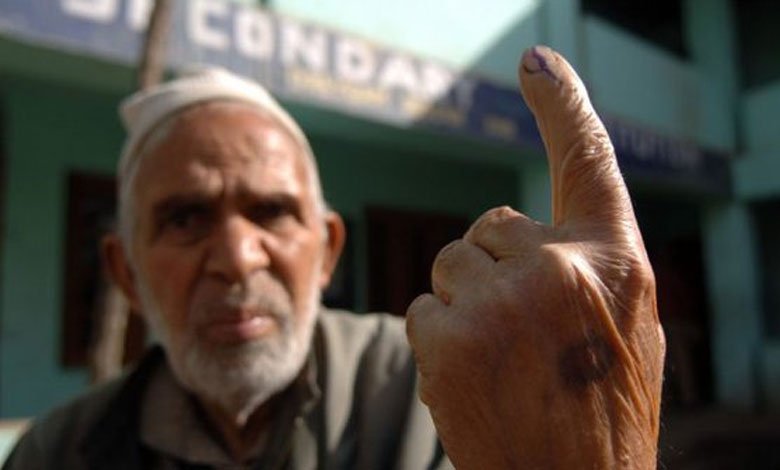Polling for J&K’s 5 Lok Sabha seats in five phases, Assembly elections afterwards
Polling for Jammu and Kashmir's five Lok Sabha constituencies will be held in five separate phases from April 19 to May 20 and the Assembly Elections will be held after the Parliamentary elections in the UT.

Srinagar: Polling for Jammu and Kashmir’s five Lok Sabha constituencies will be held in five separate phases from April 19 to May 20 and the Assembly Elections will be held after the Parliamentary elections in the UT.
Announcing the poll schedule for the Lok Sabha elections at a press conference in New Delhi, Chief Election Commissioner Rajiv Kumar said that the Udhampur-Kathua Lok Sabha constituency will go to polls on April 19, the Jammu constituency on April 26, the Anantnag-Rajouri constituency on May 7, Srinagar on May 13, and Baramulla on May 26.
Counting will be held on June 4.
The CEC said that all the political parties which met the Election Commission during its recent visit to J&K had asked for simultaneous Assembly and Lok Sabha elections.
“But, the administration there said in one voice that given the security concerns, the Assembly elections cannot be held together with the Lok Sabha elections,” he said.
He noted that there are 90 Assembly constituencies in J&K and if there are 10-12 candidates in every constituency, that would make a total of around 1,000 candidates.
“Each candidate has to be provided double column security which means an additional 500 companies of CAPF would be required for this, which is not possible as the security forces could not be spared in such numbers at the moment. Once the Lok Sabha elections are over, we will soon hold the Assembly elections in J&K,” the CEC said.
In an important disclosure, CEC Rajiv Kumar said that the J&K Reorganisation Act, 2019 provided for 107 Assembly seats, out of which 24 were kept for Pakistan-occupied Jammu and Kashmir (PoJK).
“This left 83 Assembly seats out of which 7 were kept reserved for the SCs. Then came the Delimitation Commission, 2022. After accepting the recommendations of the Delimitation Commission, a fresh notification was issued, which increased the number of Assembly seats from 107 to 114. Out of these, 24 were kept for PoJK, 7 for SCs while 9 seats were reserved for the STs. In addition to this, 2 seats were kept for the migrant Kashmiri Pandits through nomination, while one of these would be a female. In addition, one seat was kept for refugees of PoJK again through nomination,” he said.
“The J&K Reorganisation Act, 2019 and the Delimitation notification of 2022 were not in sync. Thus there was no question of holding Assembly polls at that time. The two were brought in sync with each other through the J&K Reorganisation (Amendment) Act, 2023 which came into force in December 2023. Thus our time for holding Assembly elections in J&K started in December 2023. This means there was no delay on the part of the Election Commission,” he asserted.
The data released by the Election Commission shows there are 86.9 lakh voters for the Parliamentary election in J&K, out of which 44 lakh are men and 42 lakh women.
A total of 67,000 voters are persons with disabilities (PWDs) and there would be special arrangements like ramps and wheelchairs at the polling booth for them. Interestingly, in J&K, 2,886 electors would be over 100 years old, while 3.4 lakh first-time voters will also exercise their democratic rights in these elections.
As many as 11,629 polling stations are being set up for the five Lok Sabha constituencies out of which there would be an average of 747 voters at each station and in no case, would the number of voters at any polling station cross 1,500.
For transparency, 50 per cent of polling stations will have webcasting while 80 will be exclusively manned by female staff. All polling stations will have basic facilities like chairs, lighting, drinking water, and separate toilets for male and female voters.
There are special instructions for the poll staff to ensure that the polling station wears a festive look to attract the voters.
For the first time, those above 85 years of age can choose to vote from their home and these votes would be collected by the poll staff in the presence of the representatives of the political parties.
There are special instructions to DMs and SPs in J&K to ensure that the polls are free, without any fear or inducement. Furthermore, no uncharted flight will be allowed to bring anything into J&K during the poll schedule.
